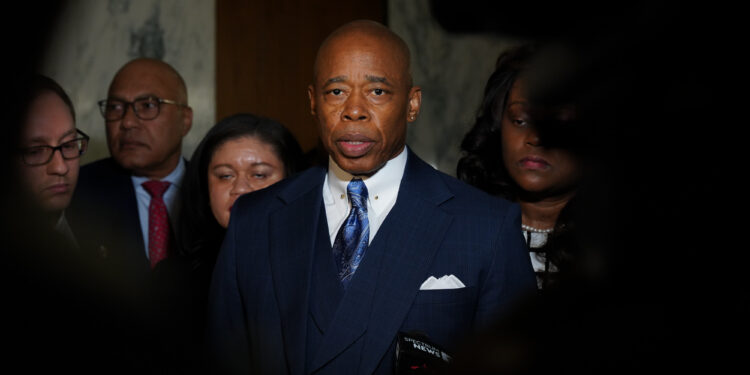A federal judge has canceled the upcoming trial date for New York City Mayor Eric Adams but declined to immediately dismiss the charges. Instead, the judge appointed a conservative attorney to oppose the Justice Department’s motion to drop the case.
Judge Dale Ho, presiding over the Manhattan federal case, ruled on Friday, February 21st, that Adams’ April 21st corruption trial would not proceed as scheduled. Instead, Ho appointed Attorney Paul Clement, a former U.S. solicitor general and prominent conservative attorney, as amicus curiae to present arguments opposing the DOJ’s bid to dismiss the case. Clement is expected to file his arguments by March 7th, with a possible hearing set for March 14th.
The decision marks a rare judicial intervention in prosecutorial discretion, highlighting the controversy surrounding the DOJ’s decision to abandon the case. Ho cited the lack of adversarial debate over the motion to dismiss, noting that both the prosecution and Adams’ defense aligned in seeking to end the case. “Our legal system assumes that adversarial testing will ultimately advance the public interest in truth and fairness,” Ho wrote, referencing past Supreme Court rulings.
The Justice Department’s abrupt decision to drop the case has triggered internal turmoil, with eight federal prosecutors, including the interim U.S. attorney for the Southern District of New York, resigning in protest.
Acting Deputy Attorney General Emil Bove represented the DOJ’s request for dismissal. Bove argued that prosecuting Adams would interfere with the administration’s immigration agenda in New York City. He also denied allegations of a quid pro quo between Adams and the Trump administration. “The only question is whether there’s any basis to believe that I made these representations to the court in bad faith, and the answer to that is absolutely not,” Bove stated.
Judge Ho’s order laid out key legal questions to be addressed, including the standard for dismissing an indictment under Rule 48(a), whether additional procedural steps should be taken, and the potential consequences if the court denies the DOJ’s motion. He emphasized the case’s public significance and the need for “careful deliberation.”









